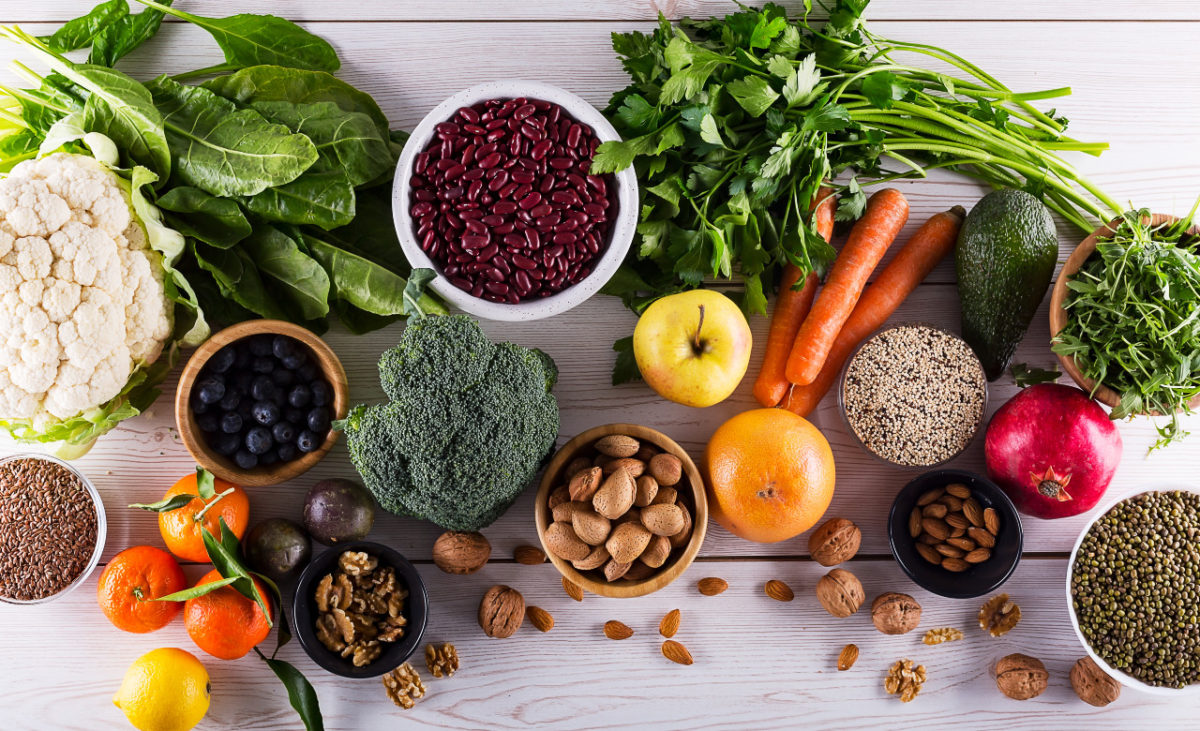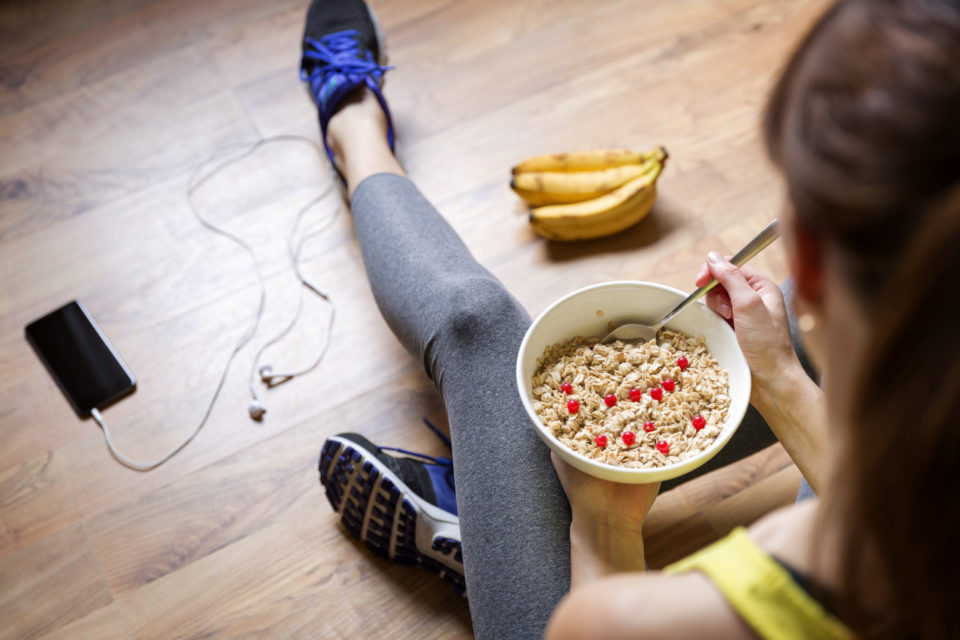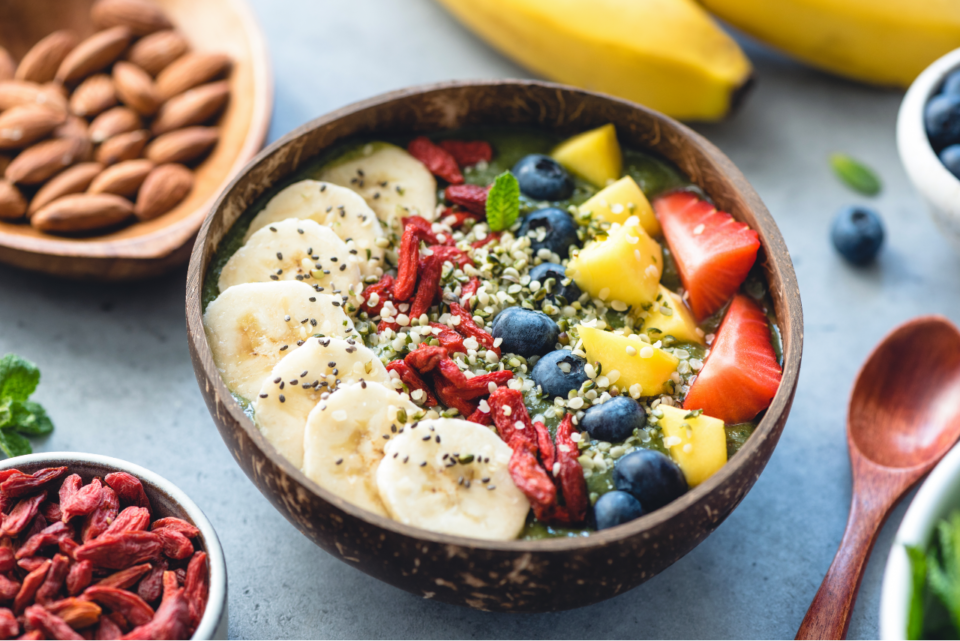
In our last blog articles we looked at the importance of superfoods and diet when doing sports. But how does it work for athletes who are following a vegetarian or vegan diet? How can they get enough essential nutrients without eating meat, eggs or milk products so that their body can perform at the level they want to achieve? We looked into this and want to share with you here all the things you, as an athlete, can do with a vegan or vegetarian diet!
Vegan or vegetarian diet for athletes – no problem!
When you think about it, you will quickly notice that many plant-based foods which athletes have in their nutrition plan anyway are already the main component of a vegan or vegetarian diet. Vegetables, legumes or whole grains have high nutrient density and lots of healthy vitamins and minerals. A vegan diet is also rich in carbohydrates since it is the most important source of energy. This is beneficial for athletes as well, who also get the energy they need to perform through carbs. Moreover, plant-based food is rich in antioxidants. While exercise can increase the production of free radicals, potential inflammatory reactions can be mitigated by the antioxidants and even the time for regeneration can be reduced. Instead of being problematic, a vegan or vegetarian diet can actually be beneficial for you as an athlete. Nevertheless, you should still pay attention to a few things!
These are the things you should keep in mind when following a vegan or vegetarian diet and doing sports

- Vegan diet
Albumin or protein is essential for building muscle. If you have set yourself an ambitious goal, your basic prerequisite should be that you get enough protein in your diet. As a benchmark, hobby athletes should consume 0.8 g/kg of their body weight. The requirement increases to 1.2 – 2.0 g/kg of body weight for people who do endurance sports or bodybuilders. Many people think that they can only meet their protein requirements by consuming food of animal origin, such as meat, sausages, cheese etc. However, these foods are often high in fat and cholesterol, which is why it is recommended to ingest protein through plant-based food such as legumes, tofu, nuts or grains. A combination of legumes and grains is optimal so that the body can absorb all of the essential amino acids.
Additionally, you should also monitor your fat intake when following a strict vegan diet. After all, fat is an important source of energy, especially for athletes. Here, it is also recommended to consume fat from plant-based sources instead of animal fats. Oils such as rape seed or olive oil are perfect choices, as are linseed and walnut oil. Additionally, vegan athletes should pay attention to their intake of omega 3 fatty acids.
A well-balanced vegan diet can provide athletes with many important nutrients. However, some of them require you take a closer look to ensure you are really getting enough of them.
Vitamin B12 is a vitamin that is generally difficult to get enough of in a vegan diet. However, athletes should make sure they are also consuming the following vitamins, minerals and trace elements: vitamins A, C, D, E, B6 and folic acid in addition to minerals such as iodine, magnesium, calcium, iron and zinc, since these are ultimately involved in muscle contractions and energy metabolism.
- Vegetarian diet
People who follow a vegetarian diet have it a little easier ensuring they consume enough protein. They can get protein through milk products or eggs for example. Vegetarians also do not have to worry about getting enough B12 either. Vegetarian athletes can meet their vitamin B12 needs with milk products. Generally speaking, a vegetarian diet requires a certain level of planning – especially if athletes are participating in competitions. Competitive sports require considerably more energy, essential minerals and protein, and experts advise athletes to make sure they are getting enough of these. Apart from that, people with a vegetarian diet have to pay attention to the same issues as vegans, although vegetarians have it a little easier getting all of their required nutrients from food.
Benefits of a vegetarian and vegan diet

Numerous benefits have already been highlighted in our text. It is no wonder then that many athletes have consciously decided to follow a vegan or vegetarian diet. After all, both diets bring athletes even more advantages:
- Vegans or vegetarians often eat more carbohydrates than people who eat animal products, especially meat. Through the high carb diet, athletes hope to increase the glycogen in their muscles, which can contribute to faster regeneration and higher levels of performance.
- In general, the advantage of a vegan or vegetarian diet is that it ensures the intake of more dietary fibre and antioxidants. This can reduce the oxidative stress while training and support the immune system.
- A vegan or vegetarian diet may offset acidosis in muscles during a workout. The reason for this is that a plant-based diet can regulate the acid ratio in muscles while athletes are exerting themselves.
While these are all just assumptions, many professional athletes, such as Timo Hildebrand (Ex-goalkeeper for the German national football team and Bundesliga player), Lewis Hamilton (Formel-1 World Champion) or Novak Djokovic (tennis pro), rely on a vegetarian or vegan diet to continue achieving their goals in their sport successfully.
If you have already been thinking about changing your diet, but you have been unsure up until now, we hope we were able to convince you that giving up animal products might be the right thing for you, too!
Image sources: shutterstock_1288402915, shutterstock_754006606, shutterstock_1288402915